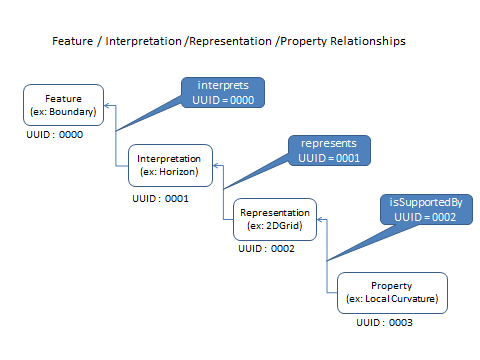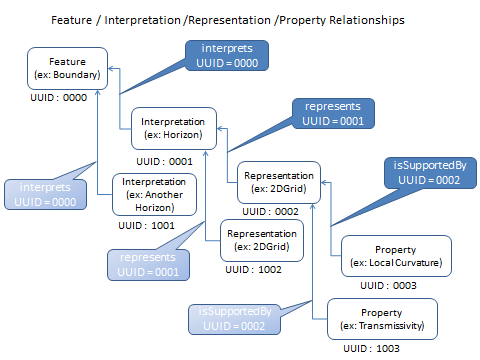4.11.3 Example of DOR Usage from RESQML
| Topic Version | 1 | Published | 11/11/2016 | |
| For Standard | CTA v2.1 | |||
In RESQML, the relationships between features, interpretations, representations and properties (informally referred to as the “FIRP”) are parent-child relationships held by the child(ren). Figure 4.11.3-1 shows an example, which is further explained in the text below. As explained in the previous section, the child data objects specify the relationship.

Each data object (except the feature) has a data object reference, which includes the UUID of the data object it references and the type of relationship. The relationships can be described as follows:
- Horizon 1 Interpretation interprets a genetic boundary feature of UUID= 0000.
- 2D Grid represents a horizon interpretation of UUID= 0001.
- A Local Curvature isSupportedBy (i.e., has numeric values and is described within) a 2D grid representation of UUID= 0002.
Figure 4.11.3-2 shows the addition of several children, which include a new interpretation, representation and property.
